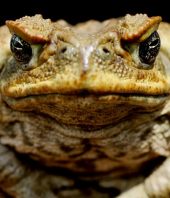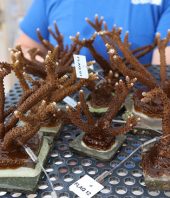The Florida black bear will remain off limits from hunters, but only for now.
The Florida Fish and Wildlife Conservation Commission on Wednesday approved a 10-year management plan and decided there was no need to schedule a hunt to control the growing population of bears in the wild.
But despite intense pressure from conservation groups, animal advocates and others, commissioners also refused to remove hunting as a method of population control, leaving the door open for future hunts. More than 50 speakers objected to the hunt, while a handful of others, mostly hunters, defended the practice.
The FWC estimates there are about 4,000 black bears in Florida, a 50 percent increase from 2002. In 1974, when the black bear was declared a threatened species, there were just about 300 animals.
“We are listening very carefully, and we are trying to take a thoughtful approach to this,” said FWC Chairman Robert Spottswood. “We are not prepared to go forward with consideration of a hunt today, but we may in the future.” He said the agency will manage bears from a conservation perspective.
After facing backlash following the 2015 black bear hunt when more than 300 animals were killed in just two days, the FWC is trying to take a more data-driven approach to controlling the bears. Commissioners talked about science and conservation and pledged to consider non-lethal population management tools to reduce human-bear conflicts. The hunt four years ago was the first in 21 years, and was hastily organized in response to a spate of maulings, three of them in Orlando suburbs.
Conservationists said at the time that the commission, appointed by former Gov. Rick Scott, overwhelmingly represented property developers resistant to preserving bear habitat.
Scheduled to last a week, the 2015 hunt was canceled after just 48 hours when harvest limits were quickly surpassed. A total of 304 bears were killed, mostly in the central region of the state and in the Panhandle. Public outrage exploded when news emerged that almost 40 lactating females were killed, leaving as many as 100 cubs to starve and die, and that baits were illegally used to attract bears into firing range. A few cubs weighing little over 40 pounds were also shot.
During the meeting on Wednesday the FWC staff, commissioners and most speakers acknowledged that Florida’s booming population of more than 21 million people creates challenges for bear management. Booming areas like the Orlando suburbs, for example, were once prowled by black bears and human-bear interactions are increasing, said David Telesco, who leads FWC’s bear management program.
“Most of the calls we receive about bears have to do with bears trying to get to people’s garbage; bears in the yard trying to get to the trash; bear climbing a tree to get to the garbage, or wandering around a gated community looking for food in people’s garbage. That’s the main issue,” Telesco said, adding that calls that are classified as general sightings often involve a bear that’s looking for food in deer feeders.

The FWC has launched education programs like BearWise to help communities limit conflicts.
One major problem is that development has sharply reduced natural food supplies like saw palmetto berries. That has pushed Florida’s largest mammal out of forests and into residential areas, where the bears can easily find trash and are more vulnerable to being hit by cars. The leading cause of bear mortality in Florida is being hit by vehicles, and roadkill numbers have steadily increased. The FWC recorded 241 deaths in 2018 compared with 245 in the previous year and 109 in 2000.
Creating more protected areas and wildlife corridors where bears can live and forage for food in peace is crucial, said Elizabeth Fleming, Florida representative for Defenders of Wildlife. Black bears, which historically inhabited the entire state, are now disconnected by development, and wildlife corridors are needed to help improve genetic diversity, according to FWC’s management plan.
“Most of the focus has been on the hunting issue, but we need to look at other measures to protect habitat and teach people not to attract bears to urban areas,’’ she said. “People feed bears rotisserie chicken! As long as that kind of thing is happening, managing bears will remain a challenge.”
Source: Miami Herald, Full Article






